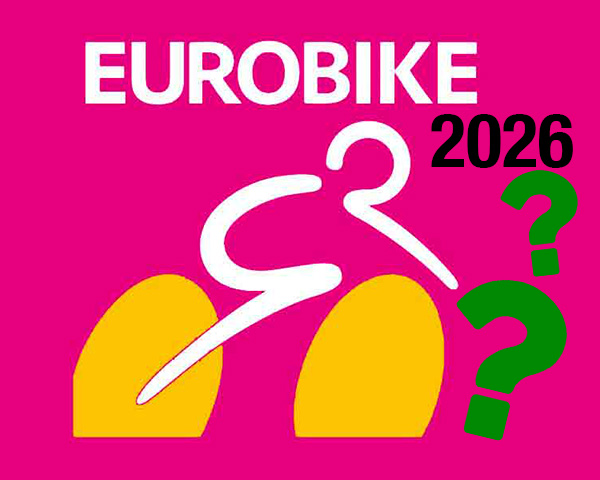Two big German trade groups, ZIV and Zukunft Fahrrad, and Bosch eBike Systems have said they will no longer support the 2026 Eurobike show in Frankfurt. This has made the future of Europe's biggest bicycle trade fair less certain. The planned exit comes after months of talks between the organizers and the associations, which put together a 10-point plan that suggested changes to the fair's structure and content to make it more useful to the industry.
Bernhard Lange, managing partner at Paul Lange GmbH & Co. also a ZIV board member, said, “After intensive discussions with the shareholders of Eurobike, we have decided to end the cooperation. We could not see that both shareholders were supporting with the same consistency the measures necessary to make the trade fair future-proof for the bicycle industry.”
Claus Fleischer, the CEO of Bosch and a member of the ZIV board, agreed, saying that the company no longer saw the "fundamental changes" needed for Eurobike to have a successful future. Lange said that his company was still deciding whether or not to participate, based on the associations' choice and previous talks with the organizers.
The people in charge of Eurobike were surprised by the move because they said that many of the suggested changes had already been made.
The 2026 event will cut the consumer festival down to one day and keep three trade-only days. It will also have an e-mobility trade show at the same time as the bicycle specialty show at Messe Frankfurt.
“Over the last few months, we have received valuable input from across the sector on how to develop Eurobike further,” the organizers said. “It is our goal to continuously develop Eurobike and strengthen its standing as the leading trade fair nationally and internationally.”
Even with these efforts, Eurobike's position is still under pressure. Since moving from Friedrichshafen to Frankfurt in 2022, the number of visitors and exhibitors has gone down, and some big brands like Specialized, Scott, and SRAM have already pulled out.
James Heaton of WTB said that more and more brands are wondering if events like Eurobike are still worth the money or if they should spend their money on brand-focused projects instead. One mid-sized business thought that exhibiting would cost about $100,000, money that could be better spent on other things.
The associations, which make up most of Germany's bicycle production, said that the event needed big changes. Ulrich Prediger, the chairman of Zukunft Fahrrad, said that Eurobike's current structure made it impossible to reach them.
The 10-point plan said that pedelecs and unauthorized bikes should no longer be separated, illegal vehicles and services at the show should be more tightly controlled, and ecosystem diversity should be given more attention. Many exhibitors had already said they were unhappy, saying that attendance was down and there was no clear strategic direction.
Fairnamic GmbH, which runs Eurobike, said that talking with people in the industry had been helpful and focused on finding solutions. Stephan Kurzawski from Messe Frankfurt will head up a trade fair advisory board that will help with the show's growth.
Still, Bosch's decision to leave, along with the uncertainty surrounding Paul Lange and other big brands, shows how hard things will be in the future. Analysts say that events put on by manufacturers, which are becoming more common in other industries, are likely to become more important, which will make Eurobike less relevant.
As the show gets closer to its 2026 edition, the industry has to think hard about what big trade shows are good for in a market where digital advertising and events for specific brands are becoming more important. Eurobike is trying to change by shortening the consumer festival and adding an e-mobility focus, but the fact that Bosch, key associations, and top exhibitors are leaving makes it hard to believe that it will still be Europe's best bicycle trade show.








